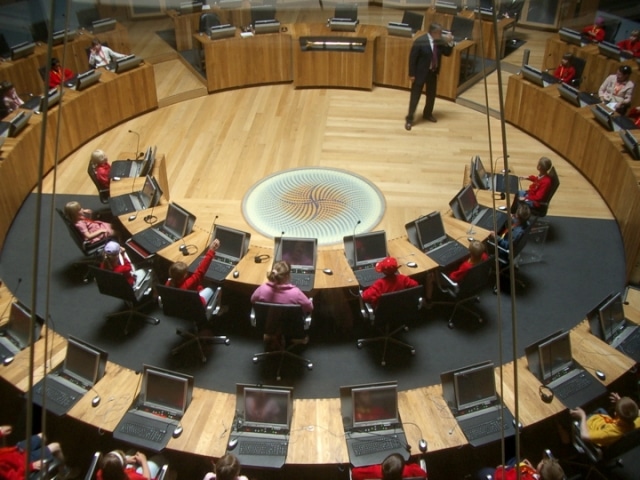Wales hopes to block fracking until 2021 while health and climate risks are investigated more extensively.
The proposed motion against fracking was led by opposition party Plaid Cymru and supported by members of both the Welsh Labour and Tory parties. While not an official ban yet, the Welsh government has promised to “do everything within its power to prevent fracking from taking place in Wales until it is proven to be safe”.
The Welsh decision follows a similar announcement from Scotland last week placing a moratorium on shale gas extraction. This means two UK constituents are now opposing Westminster’s push to go “all out” for shale.
The Labour-majority Welsh Assembly promised yesterday to support the opposition party’s motion against fracking in a 37 to 16 vote.
The Assembly will now work to block shale gas extraction over the next six years. However, there will be an option for communities to opt back in again.
Antoinette Sandbach, Welsh Conservative party member, said: “A moratorium until 2021 gives sufficient time for far more research into the implications of fracking for parts of rural Wales and will allow informed decisions to be taken.”
While the powers to control fracking in Wales currently remain at Whitehall, Welsh ministers have called for them to be devolved. A decision is expected to be delivered next month.
Carbon-Intensive Energy
Llyr Gruffydd, the Plaid Cymru shadow minister for sustainable communities, energy and food, said: “Plaid Cymru is calling for a moratorium on fracking because of the danger it poses to the environment, water and health.
“Investing in another form of carbon-intensive energy would make a mockery of our domestic and international obligations on greenhouse gas emissions and climate change. We should be pursuing alternative sources of energy, for the safety of our communities.”
The decision puts enormous pressure on Westminster in the lead up to the May election. Last month MP’s overwhelmingly rejected a similar motion to ban fracking.
Simon Clydesdale, a Greenpeace UK energy campaigner, told Click Green: “Ed Miliband should join his commonsense colleagues in Wales and Scotland and back a moratorium across the UK.
“Clearly fracking is becoming increasingly politically toxic – MPs across all parts of the UK should realise this, or they may pay the price in May’s election.”
Fracking Loophole
Ministers in Scotland have also called for a loophole in their moratorium on fracking to protect communities and the environment from experimental gas extraction technology known as underground coal gasification (UCG).
The equally controversial process which involves igniting the coal underground is used to exploit coal that cannot be mined due to the seams being too deep.
The process is very similar to fracking as it generates large amounts of toxins and is heavily associated with groundwater contamination.
Mounting Opposition
Fracking opposition has grown with the changing political landscape as a recent poll by Userv has found, with 40 percent of respondents voting against fracking in the UK while only 25 percent supported it.
Gareth Clubb, director of Friends of the Earth Cymru, told WalesOnline: “We’re delighted by the prospect that the Welsh Government looks to support this stance.
“We look forward to the Welsh Government using all the powers it currently has under planning and environmental permitting to make sure that unconventional gas extraction does not take place in Wales.”
Correction 6 Feb 2015 9:00am: Please note this article previous stated that Wales voted to ban fracking. While Plaid Cymru is calling for a moratorium the Assembly did not place a moratorium on shale gas extraction in Wales. This has now been clarified in the article.
Photo: Anne Siegel via Flickr
Subscribe to our newsletter
Stay up to date with DeSmog news and alerts






